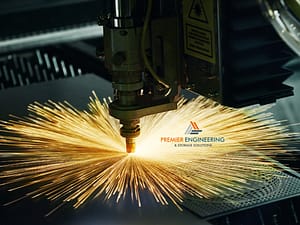For small businesses in the baking industry, selecting the right commercial baking equipment is not merely a purchase decision; it’s a foundational aspect of business planning that impacts almost every facet of operations. The right equipment enhances operational efficiency, ensures consistent product quality, and supports business scalability. Effective equipment choices can streamline workflows, reduce labor costs, and adapt to increasing production demands as the business grows.
Overview of Commercial Baking Equipment Types
Commercial baking equipment encompasses a wide range of machines and tools designed to handle large-scale baking tasks efficiently. Essential equipment includes commercial-grade ovens, mixers, proofers, and dough sheeters. Among these, combination ovens stand out for their versatility and are becoming increasingly popular in small business settings due to their ability to perform multiple cooking functions within a single unit. This adaptability makes them particularly beneficial for small bakeries with limited space but diverse menu offerings.
Baron Combination Ovens: A Prime Choice for Small Businesses
What Are Baron Combination Ovens?
Baron combination ovens are advanced commercial cooking equipment known for their multifunctionality. These ovens combine the features of convection ovens with steam cooking, allowing them to bake, roast, steam, broil, and more. The integration of these functions into one unit makes a Baron combination oven an efficient space-saving solution for small kitchens.
Advantages of Using Baron Combination Ovens in Small Operations
Choosing a Baron combination oven offers several key benefits for small businesses:
- Versatility: The ability to perform various cooking methods in one appliance allows businesses to expand their menu offerings without requiring additional space for more equipment.
- Space Efficiency: Their compact design saves valuable kitchen space, a crucial consideration for small establishments.
- Energy Conservation: Baron ovens are designed to maximize energy efficiency, reducing operational costs over time. The precise temperature control and quick cooking times ensure minimal energy waste.
Assessing Your Business Needs for Baking Equipment
Identifying Your Baking Equipment Requirements
To determine the right types of baking equipment for a small business, consider the following steps:
- Evaluate the Menu: Analyze the menu to understand the types of baking and cooking processes needed.
- Estimate Production Volume: Consider the quantity of food that needs to be produced to meet customer demand efficiently.
- Assess Kitchen Layout: Take into account the available kitchen space to ensure the equipment fits without overcrowding the area.
Specific Considerations for Choosing Combination Ovens
When selecting a combination oven like the Baron model, small businesses should consider:
- Capacity: Ensure the oven size aligns with your production needs. It should be large enough to handle peak demand but not so large as to waste energy.
- Energy Efficiency: Look for ovens with high energy efficiency ratings to minimize operational costs.
- Ease of Use: Consider ovens with user-friendly interfaces and programmable settings to streamline training and day-to-day operations.
Maximizing Limited Space with Multifunctional Equipment
Benefits of Multifunctional Equipment in Small Spaces
Multifunctional equipment like Baron combination ovens are invaluable in small bakery kitchens due to their ability to consolidate multiple cooking functions into a single appliance. This versatility:
- Reduces the Need for Additional Appliances: By combining capabilities such as baking, steaming, and roasting, these ovens eliminate the requirement for separate equipment for each function, saving both space and capital.
- Enhances Kitchen Workflow: With fewer appliances in the kitchen, staff can move more freely and efficiently, which helps to streamline operations and reduce the time from order to service.
Layout Tips for Small Bakery Kitchens Using Combination Ovens
When integrating a combination oven into a small kitchen, consider the following layout strategies:
- Central Placement: Position the oven in a central location to allow easy access from all workstations, facilitating its use for multiple cooking processes.
- Zone Design: Organize the kitchen in zones based around the oven. Place preparation areas nearby and consider the placement of related equipment, like mixers and worktables, to optimize the flow of activities.
- Vertical Storage: Utilize vertical space for storage around the oven to maximize floor space. Use shelves and hanging racks to keep essential tools and ingredients within easy reach.
Financial Considerations When Investing in Baking Equipment
Understanding the Cost-Benefit of High-Quality Equipment
Investing in high-quality, multifunctional equipment like Baron combination ovens can offer significant long-term savings and a strong return on investment (ROI) due to:
- Durability: Higher quality equipment tends to have a longer lifespan, reducing the frequency and costs of replacements.
- Energy Efficiency: Modern high-quality ovens are designed to consume less energy, which can substantially lower utility bills over time.
- Increased Productivity: Enhanced features and reliability can lead to higher productivity, supporting a faster return on investment.
Options for Financing Equipment Purchases
For small businesses, purchasing essential baking equipment can be financially daunting. Available financing options include:
- Equipment Loans: Specific loans designed to fund the purchase of new equipment, offering the ability to spread the cost over time.
- Leasing Options: Many suppliers offer leasing arrangements that provide use of equipment without the upfront costs, often including maintenance and upgrades.
- Rent-to-Own Agreements: These contracts allow businesses to rent equipment with the option to purchase it at the end of the rental period, often applying some portion of the rent paid towards the purchase price.
Conclusion: Making a Smart Investment in Baking Equipment
Key Takeaways for Small Business Owners
Choosing the right commercial baking equipment, especially multifunctional models like Baron combination ovens, is crucial for:
- Enhancing Operational Efficiency: Streamlining kitchen operations through the use of versatile and space-saving equipment.
- Supporting Business Growth: Providing the capability to increase menu offerings and handle higher volumes of business without additional space or equipment investments.
Encouragement to Prioritize Quality and Versatility
For small business owners, the emphasis should be on selecting equipment that not only meets current needs but also can adapt to future business growth. Investing in quality and versatility, such as that offered by Baron combination ovens, ensures that the equipment will continue to serve the business well as it evolves, ultimately supporting long-term success and sustainability.









